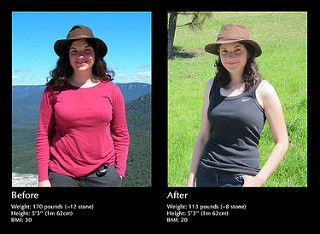Is Your Fat, Your Fault?
111,000 people in the U.S. die each year from obesity related illnesses. It is one of the leading preventable causes of death in our country. Considering that 66.3% of us are overweight, and 32% fall into the category of obese, this is a major public health issue.
I have covered some of the affects of food marketing and the idea that sugar may be addictive in previous blogs. In this blog we are going to be looking at Dr. Eric Stice’s research that helps us understand why this is so and just how it works from a physiological perspective.
Dr. Stice found some very interesting results by comparing the brains of obese vs. lean individuals. He was trying to see if the obese had an abnormal response to the anticipation of eating and actual eating. What he found was amazing. He showed his participants pictures of a chocolate milkshake, that he was about to let them consume.
He measured what their brains did in response to the sight/anticipation of having this milkshake. (He was showing the milkshake to us as he was presenting his findings and here it has been about 30 days since I saw this, and I am still craving it.) What he found was that obese individuals had increased brain activity in certain reward centers of the brain in response to the sight and anticipation of the shake. This was greater than in lean individuals. (I fall into a weird category in that I was formerly heavy and have been lean for l9 years.)
When actually having the shake he found a blunted response in the dopamine (reward) areas of the brain in the obese subjects. They actually got less pleasure from consuming the shake than did the lean subjects. We think this is because they have fewer dopamine receptors in the area of the brain that mediates reward from food. Therefore, we would expect them to consume more to try and compensate for this deficit. What we don’t yet know is if this was present prior to the onset of obesity, or if obesity actually causes this.
Dr. Stice also found a group of subjects who got heightened reward from both the anticipation and intake of the shake. These subjects were also prone to weight gain.
As part of the study he gave the subjects two shakes. One he told them was a full fat, regular shake and the other a low fat, low calorie shake. All participants got less pleasure from the low fat, low calorie shake even though in reality they were both exactly the same full fat shakes.
So what does all this mean? To me it means that food marketing is very effective if it gets our brain’s pleasure centers going and starts us craving certain foods. If you haven’t seen the McCafe ads for McDonald’s new coffee drinks, you are probably on a deserted island. McDonald’s is spending 100 million dollars to market their new coffee drinks that they expect will bring in about 1 billion in revenue. What we are being shown are drinks with whipped cream and gooey stuff on top (very much like what Dr. Stice showed his subjects).
This is activating the reward centers in the brain and the brain then says, “HAVE SOME”. If you are lean and “HAVE SOME”, you are likely to get pleasure from it and stop when you have had enough. If you are obese you will “HAVE SOME” and want more because it didn’t quite cut it. If you are in the heightened reward for both anticipation and eating group, you will also want more because it was that good.
More on what we can do about all this coming up. Stay tuned.
If you’d like to participate in the research for Irene’s new book about the process of weight loss, please visit www.eatingdisordertherapist.com/ and take the survey.
You can follow Irene on Twitter here.
-
Rebel Diet by Emma James finally released
After quite a wait, the book is finally released. Rebel Diet, the a
-
An Look at Mini Tummy Tuck
What is a mini tummy tuck? Officially called a partial abdominopla
-
The Hoodia Marketing Wars
How marketing is spoiling Hoodia.Lets be frank. Much of the western Wo
-
7 Smoothie Ingredients That Make You Slimmer!
Smoothies are already a
-
9 Small Changes That Can Make A Big Difference To Your Weight Loss
Losing weight can someti
-
Keep Your Weight Loss System Simple But Focused!
I very much doubt that there will be any information in this articl
- DON'T MISS
- Weight Loss That Just Works
- Knowledge is Power: Combatting Obesity in America
- Robotic Technique Shows Promise In Weight Loss Surgery
- Five Tips On How To Start Losing Weight
- Get Your Hormones On Board To Help You Lose Weight
- Helpful Weight Loss Tips
- A Low-Carb Diet and Workout Combo to Burn Body Fat
- 3 Questions to Ask Yourself for Successful Weight Loss
- Wide Barbell Squat- A Perfect Resistance Training Exercise To Build Your Quads
- Find Out Which Special Diet Will Work For You




